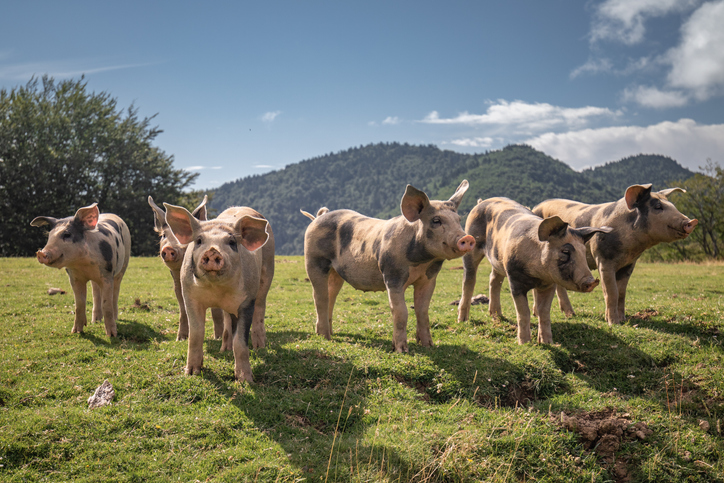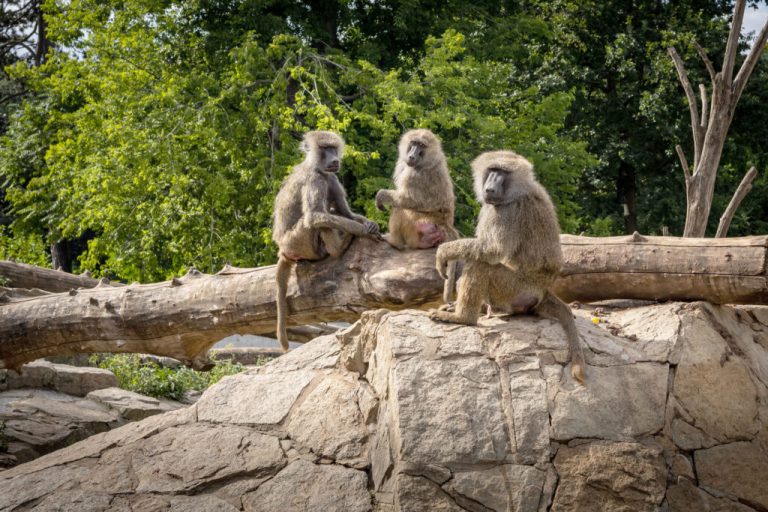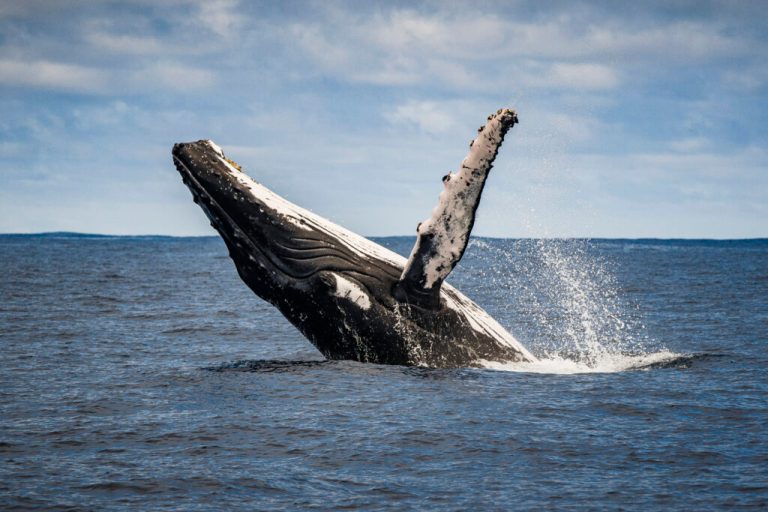You may have heard of the bystander effect, the psychological theory that some people are less likely to step in to confront a bully when there are others around. According to a November study published in the journal Animal Cognition, domestic pigs have their own set of conflict resolution behaviors that also involve bystanders.
Researchers from the University of Torino in Turin, Italy, observed 104 semi-free ranging pigs over a five-month period and noted any instances of fighting among them, as well as what happened in the aftermath. They found that both victims and aggressors engaged in “reconciliation behavior,” including resting their heads on each other, sitting side-by-side, and touching nose-to-nose, per a press release.
In the study, the authors explained that conflict resolution in social animals, like pigs, humans, primates, and wolves, typically follows one of two paths: “The reunion of former opponents (aggressor and victim) after an aggressive event (reconciliation)” or the introduction of a third party, who either intervenes of their own accord or is solicited by an opponent.
All of the pigs observed were living together on an ethical farm with over 120 acres to roam. By noting their markings, breed, size, and in some cases, genetics, the researchers were able to determine the animals’ kinships. Interestingly, the “reunions” the team witnessed most often involved two distantly related pigs, possibly because the animals were attempting to “improve tolerant cohabitation.” The third-party interventions, on the other hand, most often occurred between more closely related pigs.
When a third-party pig, or bystander, was around, the effect depended on whether the bystander approached the victim or aggressor first. If the victim was approached first, there would be no change in the number of aggressive behaviors, but the victim would be notably less anxious in the time following. If the bystander first approached the aggressor, however, the number of subsequent attacks were “significantly reduced,” per the press release.
Though the authors stressed that their findings were based only on one group of animals and may not represent the behavior of the entirety of the species, they concluded “that pigs might possess socio-emotional regulation abilities to change their own or others’ experience.” Yet another example of animals being smarter than we may give them credit for.











